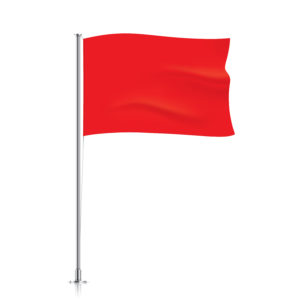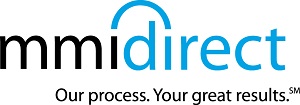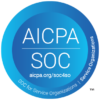Maintaining excellent data hygiene is an ongoing process that requires constant vigilance.
Here are three areas where you can proactively improve your organization’s data quality:
-
- Rented lists – Responders to acquisition mailings subsequently get added to a donor database. Make sure all merge/purge processing uses the highest quality, most complete set of hygiene products. That way, responders will be coming on to the file at the cleanest addresses possible.
- Data Entry – When data is manually entered into a database system, make sure input fields include standardization rules allowing only valid data types.
- Audit all platforms your organization uses to collect information from supporters, donors and customers to ensure standardization rules are applied here too: website sign-ups, survey forms, webinar registration forms, whitepaper download forms, canvassing sign-up forms, event and auction registrations, volunteer registrations, among others.
Watch out for these red flags during every merge/purge process
Data hygiene is particularly critical during merge/purge processing, when many different internal and external list sources are combined and optimized for a donor or customer acquisition campaign.
QC your data with detailed list hygiene reports to uncover anything that doesn’t make sense. Highlight suspected errors to investigate further.

Examples of suspicious data include:
-
- Hotline names (donors or customers who have donated or purchased within the last three months) with unusually high percentages of National Change of Address (NCOA) database matches.
- A high number of address standardization conversion rejects. Find out why.
TIP: It’s best to allow potential data errors to survive the conversion process so they can be corrected during the data hygiene process.
-
- Zero matches in the merge/purge.
- Zero hits on the NCOA database.
- High NCOA hit rates on Family lists. Make sure only Family moves were provided. NCOA includes three types of moves: Individual, Family and Company. Family lists for NCOA should only match to Family moves.
- Family lists with any Proprietary Change of Address (PCOA) hits. PCOA matches only at the Individual level. Since there are no first names on a Family list then there shouldn’t be any PCOA matches.
- ZIP+4 addresses are less than 95% of the file, except for your undeliverable suppression files. Note that data gathered online may have questionable data quality, which can decrease the percentage of records getting a ZIP+4 assigned.
- Beware of drastic differences in net output percentages of a specific list between your current merge process and previous merges that used the same list source. This might signify a problem and should always be investigated.
TIP: Be sure to analyze the data hygiene of all individual lists included in a campaign. Issues might be hidden in a summary analysis that only covers the total mailing metrics.
Weird things do happen. We’ve seen cases of incorrect sorting of Excel spreadsheet data and separate house file data segments that mistakenly include duplicate data, and many other errors.
Make sure your data processing partner has thorough quality control processes and reporting in place to identify and correct problems early, before they negatively impact your campaigns.
We’d love to answer any questions you may have about data hygiene best practices. Contact us today!

Senior Account Director Ross Fate has 21 years of direct marketing experience, with 18 of those years at MMI Direct. Ross works directly with many MMI clients on their ongoing data processing and merge purge projects. He also leads the onboarding of all new clients, where he focuses on ways to enhance their overall merge purge process. Ross also serves as an expert resource for our nonprofit clients anytime they need assistance with their data.



